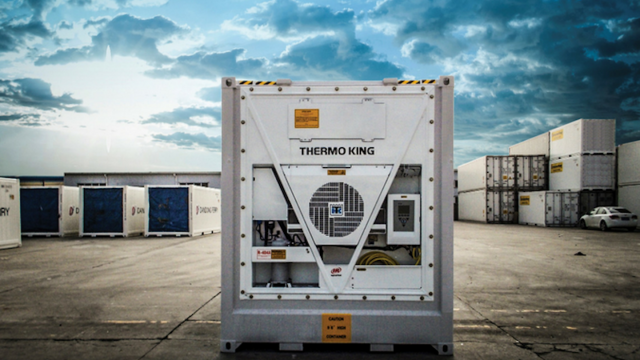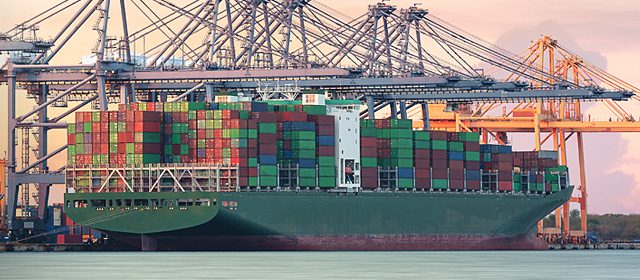The future of food is fish

According to several sources, the global demand for fish is growing rapidly. Fish consumption has already doubled since 1998 and the New Scientist predicts that it will increase by a further 80% by 2050. Since a reliable cold chain is essential for transporting fish from sea to supermarket, this trend will emphasise the importance of refrigeration solutions.
There are a number of reasons for the increasing demand for fish. The global population is expected to be 9.8 billion by 2050 and nourishing that many people is seen as one of the biggest challenges facing humanity. At the same time, people are increasingly aware of the health benefits of aquatic food. Fish are a rich source of vitamins – mainly A, B, D and E – and oily fish contain polyunsaturated omega-3 fatty acids that are known to reduce the risk of cardiovascular disease. Another factor is that, as disposable incomes grow in an increasingly sophisticated and health-conscious middle class, many can afford to eat better.
Blue food is green food
There is also the matter of sustainability. The World Economic Forum has indicated that aquatic foods (widely known as ‘blue food’) generally have a lower environmental impact than land-based livestock. The reason is quite logical: unlike terrestrial animals, fish do not expend energy regulating their body temperature or resisting gravity, allowing them to allocate a greater portion of their metabolic energy to growth. It simply takes less of the world’s resources to create food in the sea, making it more attractive to eco-aware consumers.
Why refrigeration is so important to fish today…
It’s all about organoleptics – that is to say preserving the qualities of the fish, such as texture, taste and smell that make it desirable to the humans who are going to pay to eat it.
In order to preserve those qualities, it is important to prevent microorganisms present in the fish from starting the decomposition process, which necessitates refrigeration. We want people to eat the fish – we don’t want the microorganisms to eat it first.
However, refrigeration is not that simple. When fish are frozen in standard freezers, large ice crystals can form, rupturing cell walls and destroying the texture of the flesh. No one wants to eat mushy mackerel. Because these ice crystals form around -5ºC, the catch needs to be flash-frozen, skipping that stage as quickly as possible.
The lower the temperature, the longer the shelf life. While most fish can be successfully transported at temperatures around -40ºC, more powerful solutions such as Thermo King Superfreezer units go even colder. They can reach the ‘eutectic point’ which for fish is -62ºC. At this temperature, microbial decomposition ceases entirely, enabling fishing fleets to keep fish frozen almost indefinitely without loss of the quality, , thereby ensuring a longer shelf life.
…and why it will be even more important in the future
As the volume of ‘blue food’ produced, processed and transported increases, the role of refrigeration becomes even more important for three key reasons.
Efficiency
As volume increases, companies will look to consolidate operations, working at greater scale and looking for greater efficiencies. Refrigeration companies are therefore working to make their equipment as efficient as possible. Thermo King’s Magnum Plus, for example, offers optimised power consumption to keep both costs and emissions as low as possible. An additional benefit of Thermo King solutions is the ability to track and log all data – essential for compliance, quality control and the ongoing optimisation of operations.
Sustainability
By using less energy to keep fish chilled or frozen, Thermo King’s advanced reefer units will help fishing companies to reduce CO2 emissions. Bear in mind also that using marine refrigeration and transporting by sea creates just 2% of the carbon emissions of the equivalent air freight journey.
But the sustainability equation is a complex one. The most sustainable companies will also be taking other factors into account, such as where they fish, the duration of the journeys at sea, and of course the natural ability of the marine environment to support the extra volume of fish that the world’s population will require. As they seek to find solutions, they need a cold chain infrastructure that gives them flexibility and adaptability.
Commercial scalability
The range of refrigeration equipment available through Thermo King gives our marine customers enormous flexibility. This is important for two main reasons. First, different fish species have different refrigeration requirements. (It is well known, for example, that oily fish such as mackerel spoil faster than lean fish such as cod.) Fishing companies will need to be able to adapt their refrigeration systems quickly and easily to handle different catches. Second, production volumes, catch sizes and other factors will vary, requiring companies to increase or decrease their capacity rapidly. Thermo King reefer units provide the flexibility that make this possible.
A big catch is waiting for you
The future is bright for the fishing industry. Growing populations and changing tastes point to a boom in the next two decades. However, fishing companies need to be able to adapt to customer demands in order to provide the type of fish they want – and in the volume they want. The companies that are most able to adapt are the ones who will be best placed to capitalize on this huge opportunity, and refrigeration equipment providers like Thermo King will be critical to their success.
Other relevant articles that might interest you

Marine
From storm to smooth sailing: the advantages and disadvantages of maritime transport.
Maritime transport is the mode favored by many for long distance freight carriage, but, as with …

Marine
Thermo King to supply 5,000 Magnum® Plus Refrigeration Units to CMA CGM.
Thermo King supplied 5,000 Magnum® Plus refrigeration units to be fitted on CMA CGM refrigerated shipping containers. …

